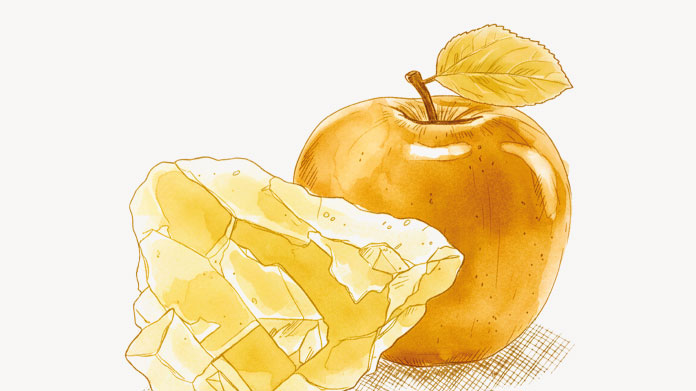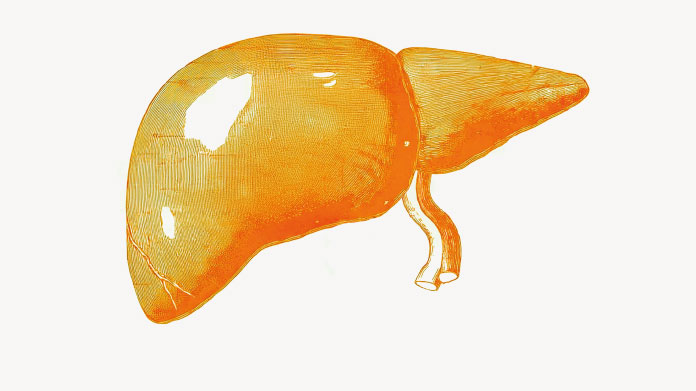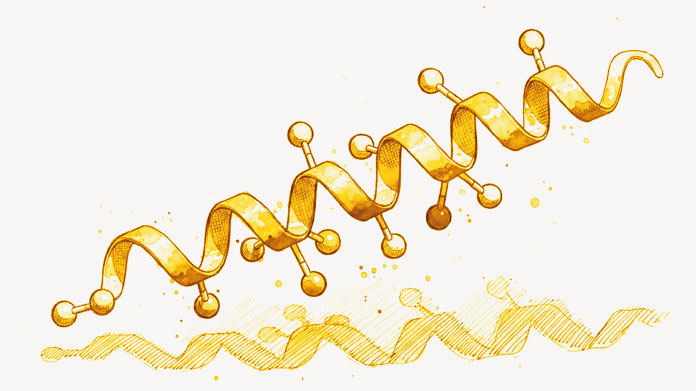Drinking alcohol can be good for your health: true or false?
“A glass of wine keeps the doctor away”. Do you agree with this old adage? Our true/false article tells you all you need to know about the health benefits or otherwise of alcohol.

A glass of alcohol a day is good for our health? True - in certain cases (though it’s hotly debated)
The subject of whether a small amount of alcohol is good for our health has been fiercely debated for years. According to some studies, consuming 10 grams of pure alcohol a day (that’s one glass of wine, half a pint of beer, a shot of strong alcohol) may have some beneficial effects on our health (1).
A team of researchers at the University of Calgary in Canada carried out two meta-analyses of studies published between 1950 and 2009 in order to evaluate the effects of alcohol consumption on health (2). Despite a number of biases, it seems that alcohol consumption in specific proportions (and only in these proportions!) among people aged 40+, increases levels of good cholesterol and thins the blood for a few hours, thus reducing the risk of atheromatous plaque formation which causes coronary disease.
According to these researchers, once you’ve passed the age of 40 (and even more so, 60) drinking a single glass a day may help to lower the risk of cardiovascular disease. But take care: consumption must remain moderate and spread out over a period of time, and the protective effects of alcohol are greatest when it’s consumed with a meal.
Many other scientists who subscribe to the ‘zero alcohol’ view, believe that the harmful effects of alcohol outweigh any benefits, even at just one glass a day. A large-scale study, spanning 195 countries, refutes the idea that a small amount of alcohol can have a protective effect (3).
However, the adverse effects of alcohol are not significant if you drink up to one glass a day. Over a 12-month period, individuals aged between 15 and 95 consuming a glass of alcohol a day would see their risk of developing a disease related to this consumption increase by just 0.5%. What’s certain, however, is that when consumption rises to at least 2 to 3 glasses of alcohol a day, the risk to health increases sharply.
Wine is different from other forms of alcohol? False.
A well-known alcoholic beverage obtained by fermenting grapes, wine has many of the characteristics of a food: it contains more than 800 different substances, including minerals, vitamins, and sometimes carbohydrates ...
It’s worth pointing out here that red wine is more beneficial than white. During the production of red wine, the grape skin and pips macerate with the juice, which is why, unlike white wine, red wine is full of tannins (polyphenols). These include resveratrol, an excellent compound that helps to support the cardiovascular system (4-5).
But let’s not forget that wine also contains water and above all ... alcohol. In reality, a balloon-type glass of wine contains 10 grams of pure alcohol. So be careful – wine is basically no different from any other alcoholic drink! To increase your intake of resveratrol (6), you can choose the healthier option of taking a course of resveratrol supplements in capsule form (for example, the product Resveratrol).
Alcohol increases the risk of cancer? True
According to the WHO, there were 3 million deaths due to alcohol in 2016 (2.3 million for men, 700,000 for women), that’s more than 5% of global deaths! Of course there were significant geographical variations in these rates - while alcohol accounts for only 0.2% of deaths in Saudi Arabia, it’s responsible for close to 22% in Russia (7).
As previously mentioned, at upwards of 2-3 glasses a day, there’s a sizeable increase in the risk of developing a health problem (cancer, cardiovascular disease, stroke, cirrhosis, etc.) – as much as +37% for an average of 5 glasses a day (8). Yet the average amount for men in most European countries, excluding Eastern Europe, Croatia and Portugal where the average is significantly higher, lies between 2 and 5 glasses a day.
And while it might be cirrhosis and other liver diseases or road accidents that come to mind when we think about alcohol-related problems, let’s remember that since 1988, alcohol has also been classed as a proven carcinogen (group 1) by the International Agency for Research on Cancer (IARC). In France, for example, alcohol is responsible for 8% of cancers, that’s almost 30,000 cases of cancer (9-12).
Alcohol is good for our mood? False.
Though drinking small amounts of alcohol produces a relaxing effect, a positive mood and even disinhibition, it also causes damage to the brain, especially when significant levels of alcohol are consumed. So even just one evening of drinking more than 5 glasses can cause serious damage to the brain.
The consequences include problems with attention and concentration, memory, ability to think abstractly, executive functions, etc. Chronic alcohol intoxication can even lead to Korsakoff syndrome (a form of amnesia) which induces significant impairment to memory as well as a tendency to tell stories to compensate for these problems, and mood disorders, etc. (13-15)
Lastly, excessive consumption of alcohol (more than 1 glass a day, and in particular, spikes of more than 5 glasses) is often linked to psychological problems such as anxiety and depression.
So no, alcohol is not good for our mood in the medium term: the very short term ‘benefits’ are just an illusion.
Supplements are available to help you detoxify from alcohol? True
We can see then, that in absolute terms, it is important to strictly limit your consumption of alcohol, or quite simply, stop drinking it altogether.
The good news is there are dietary supplements that can help you detoxify from alcohol. One such product is kudzu (Pueraria montana), a rampant climbing plant from Asia and part of the Fabaceae or bean family. Some naturopaths recommend taking this plant extract to wean yourself off alcohol (see the supplement Kudzu Extract). The same goes for dihydromyricetin, a natural flavonoid found primarily in a Chinese plant known as vine tea (you’ll find it in the supplement Dihydromyricetin).
Kudzu can also be synergistically combined with other compounds for even greater effect: the well-known supplement Alcohol Detox also contains a number of antioxidants, vitamin B1 – good for the nervous system, and silymarin, a mix of flavolignans from milk thistle, known for its liver-protective effects.
Milk thistle and turmeric are in fact both star plants in naturopathy, the liver-protective effects of which have been widely demonstrated by numerous studies. That’s why these two plants are combined in certain supplements (such as Rehab).
References
- Lakshman R, Garige M, Gong M, Leckey L, Varatharajalu R, Zakhari S. Is alcohol beneficial or harmful for cardioprotection?. Genes Nutr. 2010;5(2):111-120. doi:10.1007/s12263-009-0161-2
- RIMM, Eric B., KLATSKY, Arthur, GROBBEE, Diederick, et al.Review of moderate alcohol consumption and reduced risk of coronary heart disease: is the effect due to beer, wine, or spirits?. Bmj, 1996, vol. 312, no 7033, p. 731-736.
- GBD 2016 Alcohol Collaborators. Alcohol use and burden for 195 countries and territories, 1990-2016: a systematic analysis for the Global Burden of Disease Study 2016. Lancet. 2018 Sep 22;392(10152):1015-1035. doi: 10.1016/S0140-6736(18)31310-2. Epub 2018 Aug 23. Erratum in: Lancet. 2018 Sep 29;392(10153):1116. Erratum in: Lancet. 2019 Jun 22;393(10190):e44. PMID: 30146330; PMCID: PMC6148333.
- DELL'AGLI, Mario, BUSCIALÀ, Alessandra, et BOSISIO, Enrica. Vascular effects of wine polyphenols. Cardiovascular Research, 2004, vol. 63, no 4, p. 593-602.
- GRISWOLD, Max G., FULLMAN, Nancy, HAWLEY, Caitlin, et al.Alcohol use and burden for 195 countries and territories, 1990–2016: a systematic analysis for the Global Burden of Disease Study 2016. The Lancet, 2018, vol. 392, no 10152, p. 1015-1035.
- SINGH, Akhand Pratap, SINGH, Rachna, VERMA, Sumit Singh, et al.Health benefits of resveratrol: Evidence from clinical studies. Medicinal Research Reviews, 2019, vol. 39, no 5, p. 1851-1891.
- https://www.who.int/fr/news/item/21-09-2018-harmful-use-of-alcohol-kills-more-than-3-million-people-each-year--most-of-them-men
- GRISWOLD, Max G., FULLMAN, Nancy, HAWLEY, Caitlin, et al.Alcohol use and burden for 195 countries and territories, 1990–2016: a systematic analysis for the Global Burden of Disease Study 2016. The Lancet, 2018, vol. 392, no 10152, p. 1015-1035.
- A Review of Human Carcinogens. E. Personal Habits and Indoor Combustions. IARC Monographs on the Evaluation of Carcinogenic Risks to Humans; IARC Monographs, Volume 100 (E). 2012 585 p.
- Marant-Micallef, C. (2018), 'Nombre et fractions de cancers attribuables au mode de vie et à l'environnement en France métropolitaine en 2015 : résultats principaux', Bulletin Épidémiologique Hebdomadaire, 442-448.
- Shield, K. D.; Micallef, C. M.; Hill, C.; Touvier, M.; Arwidson, P.; Bonaldi, C.; Ferrari, P.; Bray, F. & Soerjomataram, I. (2017), 'New cancer cases in France in 2015 attributable to different levels of alcohol consumption', Addiction 113(2), 247--256.
- WCRF /, AICR (2018), 'Diet, Nutrition, Physical Activity and Cancer : a Global Perspective', Technical report, WCRF / AICR.
- LISHMAN, W. A. Alcohol and the brain. The British Journal of Psychiatry, 1990, vol. 156, no 5, p. 635-644.
- BODEN, Joseph M. et FERGUSSON, David M. Alcohol and depression. Addiction, 2011, vol. 106, no 5, p. 906-914.
- KOPELMAN, Michael D. The korsakoff syndrome. The British Journal of Psychiatry, 1995, vol. 166, no 2, p. 154-173.
Keywords
3 Days
Efficiency and speed
Efficiency and speed
Cuccie
5 Days
GOOD BRAND IN FOOD COMPLEMENTS
GOOD BRAND IN FOOD COMPLEMENTS - SERIOUS WITH GOOD DOCUMENTS AND DETAILS SCIENTIST. AND SERIOUS HONNEST COMMERZIALISATION. I HAVE TRUST IN THEIR PRODUCTS.
FENOGLIO Guy
6 Days
Very good experience
Very good experience, the products arrived in time, in perfect condition and are good quality. Thank you.
GABI TIRCOCI
12 Days
very good expereince
very good expereince
Jelena Đaković
12 Days
Very good products.
Very good products.
Agnes BENDSAK
14 Days
Just OK
Just OK, ordering from company for many years and being safisfied
Lynn Mae
14 Days
Recomendo
Produtos encomendados são recebidos atempadamente e de acordo com o anunciado! Muito satisfeita!
Carla Sofia
15 Days
Everything is great!
Everything is great!
Jonas
20 Days
The delivery was fast and the product…
The delivery was fast and the product is great
SOMMARIVA Gianni
21 Days
Great service and lots of information
Great service and lots of information
Gabi
24 Days
Service Satisfaction
I’m satisfied with the service; it fulfilled what it set out to do.
Anfhony Abreu
27 Days
Original product and fast delivery
Original product and fast delivery. I haven't started it yet, but will do soon.
Vincenza Catania
30 Days
Good quality
Good quality. Good service.
Leonel Guzman
32 Days
Top!!!!!!!!
Top!!!!!!!!
Michael
34 Days
Excellent!
Products are great and delivered fast!
PARDINI Debora
of experience
your money back
##montant## purchase




